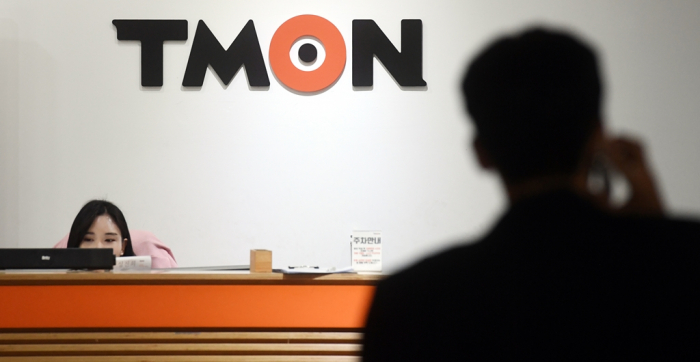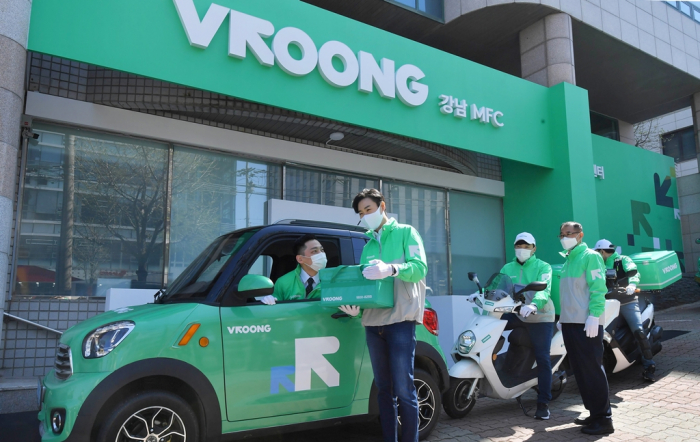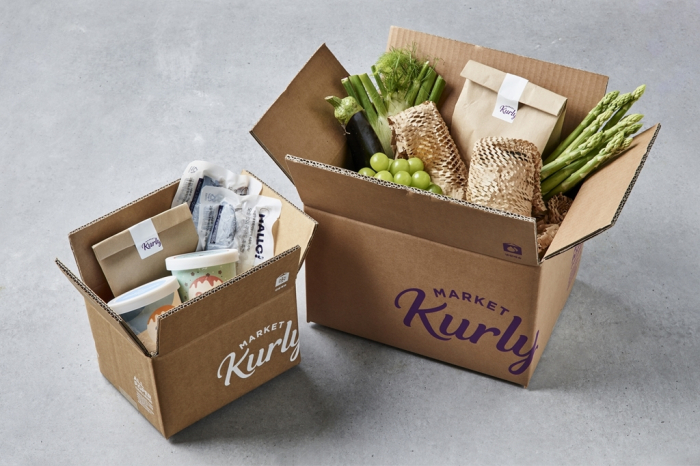Corporate restructuring
Risks of restructuring rise in Korean platform sector
A burst of the valuation bubble is expected to accelerate M&As in the industry, but platform startups' valuations need to fall more
By Aug 17, 2022 (Gmt+09:00)
5
Min read
Most Read
LG Chem to sell water filter business to Glenwood PE for $692 million


Kyobo Life poised to buy Japan’s SBI Group-owned savings bank


KT&G eyes overseas M&A after rejecting activist fund's offer


StockX in merger talks with Naver’s online reseller Kream


Mirae Asset to be named Korea Post’s core real estate fund operator



South Korean platform operators are feeling cornered following rapid expansion during COVID-19 as growing risks of a global economic recession and rising interest rates have dried up liquidity, particularly for those with slower growth.
Some founders of platform companies are being forced to give up their management rights due to mounting losses, while others went public with their valuations dramatically cut for survival. Many of them slashed jobs and restructured their businesses to deal with sustained losses and sluggish sales growth.
Several major platform operators whose valuations have been estimated in the hundreds of millions of dollars are being put up for sale by force, according to investment banking industry sources on Tuesday. Among these are e-commerce platform TMON Inc., majority-owned by Kohlberg Kravis Roberts & Co. (KKR) and Anchor Equity Partners; homegrown over-the-top (OTT) platform Watcha Inc.; and logistics service provider Mesh Korea Co.
Risks of restructuring are expected to grow further with only the top players likely immune to the headwinds, experts said.
“It is similar to the early 2000s when only Naver survived while many other internet companies went bankrupt with the bursting of the dot-com bubble,” said a president of a brokerage house. “Everybody just started seeing a bloody battle of survival with massive restructuring in each platform sector.”
FORCED TO SELL
Mesh Korea Co., the operator of a delivery platform Vroong, achieved remarkable growth during COVID-19 with sales of 303.8 billion won ($232.1 million) last year, more than 10 times the 30.1 billion won in 2017. The startup founded in 2013 was in the spotlight as an innovative venture company and raised more than 120 billion won.
But the heyday is over as growth has slowed and losses have mounted, raising doubts over its future. The company reported an operating loss of 36.5 billion won in 2021, more than doubling its 17.8 billion won loss the previous year. Its accumulated deficit topped 110 billion won.
Mesh Korea borrowed money from non-banking financial companies this year using as collateral the founder’s stake, which may have to be sold, according to industry sources.

The startup was known to have agreed to hand over management rights for the funds, while the sources doubted if the deal actually took place.
Mesh Korea is not the only company in a difficult position. TMON reported an operating loss of 76 billion won last year, larger than a shortfall of 63.1 billion won in 2020, with sales down 14.7% to 129 billion won.
TMON: HEADACHE TO KKR, ANCHOR
KKR and Anchor have poured money into e-commerce platform TMON since they acquired it in 2015, but it has failed to narrow the market share gap with industry giant Coupang Inc. TMON’s corporate value was estimated to have shrunk to some 200 billion won from the earlier valuations of up to 2 trillion won.
The company was understood to be in talks with Qoo10 Pte. Ltd. for a sale, but industry sources said it was uncertain if the Southeast Asian e-commerce platform headquartered in Singapore will acquire the loss-making company.
“Market talk is swirling that TMON will run out of cash in three months,” said a private equity industry source. “The reputation of global PE firms KKR and Anchor Equity has been tarnished.”
TMON’s competitor Wemakeprice Inc. has been burdened with similar problems, given declining users. Its sales tumbled to 244.8 billion won last year and shareholders are expected to seek sales of their stakes for an exit, industry sources said.
Watcha faced difficulties in fundraising as the OTT platform has floundered amid fierce competition with major players such as Netflix, Wavve, TVing, Coupang Play and Disney+. Its operating losses surged last year even as its sales nearly doubled. The company was known to take measures for restructuring such as requesting voluntary retirement.
IPOS AT LOWERED VALUATION
Such a bearish environment in the platform industry kept venture capitalists and PE firms from investing in pre-initial public offerings. Investors have focused only on the top-tier companies in each sector.
“Few are willing to invest in platform operators as it is difficult to continue pouring water into a bottomless pit,” said a pension fund official.
Some platform companies sought listings for survival even as their corporate valuations more than halved. The country’s first mobility unicorn Socar Inc. slashed its IPO price to push ahead with its stock market debut with its enterprise value forecast in the mid to high end of the 900 billion won range, down 60% from the upper end of its previously estimated valuation.
Kurly Inc., the operator of grocery delivery service Market Kurly, is predicted to go public although its corporate value was estimated at about 1 trillion won, sharply lower than previous valuations of up to 4 trillion won.

INVESTMENT OPPORTUNITIES?
Experts are worried that the industry may suffer similar difficulties seen during the bursting of the dot-com bubble in 2001 when many internet companies went broke.
But some argued the current situation is different as many platforms have improved consumers’ daily lives, even if their valuations were elevated.
“Investors will focus on discriminating gems from pebbles from now on,” said an executive of another brokerage house. “Once the bubble bursts, we will see quick mergers and acquisitions between companies that can create synergy.”
Local major conglomerates and PE firms with large cash reserves are keeping an eye on potential acquisition targets since the recent downturn in the platform industry could be a chance for bottom fishing.
“Retail majors are watching platforms that could improve their weak online businesses,” said an investment banking industry source. “But those companies and PE firms may take action only when valuations fall further.”
Write to Chae-Yeon Kim at why29@hankyung.com
Jongwoo Cheon edited this article.
More to Read
-
 IPOsMobility platform Socar slashes price to push ahead with IPO
IPOsMobility platform Socar slashes price to push ahead with IPOAug 09, 2022 (Gmt+09:00)
2 Min read -

-
 Mergers & AcquisitionsKorean homegrown OTT platform Watcha up for sale
Mergers & AcquisitionsKorean homegrown OTT platform Watcha up for saleJul 27, 2022 (Gmt+09:00)
1 Min read -

-
 LogisticsMesh to raise up to $253 mn to become logistics unicorn
LogisticsMesh to raise up to $253 mn to become logistics unicornJan 13, 2022 (Gmt+09:00)
2 Min read -
 E-commerce platform TMON delays IPO plans
E-commerce platform TMON delays IPO plansJul 23, 2021 (Gmt+09:00)
2 Min read
Comment 0
LOG IN


